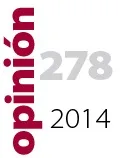Hong Kong: Supervised Meritocracy or Unhindered People Power?

Sean Golden, Associate Senior Researcher, CIDOBNovember 13, 2014 / Opinión CIDOB, nº. 278
A priori approaches to the Occupy Central movement in Hong Kong based on consolidated Euroamerican models of democracy impede a better understanding of the underlying causes of the confrontation. In order to adopt a comparative approach we should examine the situation in terms of its own historical and ideological contexts.
Hong Kong has no democratic past, nor did China; not under imperial China nor as a colony of the United Kingdom. What the Occupy Central Movement is demanding is something new for both Hong Kong and for China.
Meritocracy is deeply rooted in Chinese political and social thought. For Confucius and his followers, the Sovereign had to merit his position on the basis of moral quality. Not everyone deserved to rule. For the Legalists, who created the State administration in the 4th century BC, those who governed had to be experts in governance. The reformist and revolutionary thinkers who wanted to import Western democracy to modernise China came to doubt the efficacy of passing too rapidly from an autocratic monarchy to a populist free-for-all (as they saw things). Democracy in the West was the product of centuries of political, economic and social evolution. China needed time to prepare itself for democracy. Sun Yat-sen did not think the adoption of the executive, legislative and judicial branches of liberal parliamentary democracy would work without two additional branches from the Chinese tradition: a meritocratic bureaucracy and a body to oversee those who governed, a kind of ombudsman with executive power. He thought the technocrats should govern and periodically seek confirmation of the support of the people, not that the people should govern directly, nor directly choose those who would govern them.
The Chinese defence of meritocracy as an alternative to democracy should be examined on its own merits and not simply dismissed out of hand. Chinese political scientists distinguish between “elective democracy” and “consultative democracy”. They distrust the former because it does not guarantee that those who are elected would actually be competent to govern, either morally or in terms of competence. On the other hand, they do say that power comes from the people and the technocrats must administer power on their behalf, so the people must be consulted. This line of reasoning explains why Beijing is willing to allow elections by universal suffrage of the leadership of Hong Kong in 2017 and to allow for multiple candidates so that the electors will actually have a choice, but are not willing to allow just anyone to be a candidate. It is easy to say that this means that they will only allow candidates who are favourable to their policies, but there is a long historical and philosophical tradition behind this line of thinking. It is also easy to say that electors in the West are allowed to vote for the candidate of their choice, but in practice they do not have much choice over who those candidates will be either, because political parties choose candidates on the basis of compatibility with party policy. We can vote for the candidates who are presented to us, not necessarily for the candidates we would like to put forward.
The nature of this kind of party politics in the West has led to a crisis in the system, producing phenomena such as the Movimento Cinque Stelle in Italy or Podemos in Spain (or Occupy Central in Hong Kong), because growing segments of the population do not trust the competence (or moral fibre) of party candidates to solve their problems.
People in postindustrial societies with parliamentary democracies based on periodical elections among competing political party organisations that each represent a part of the interests of the population, but none of which represent the whole of the interests of the people, have forgotten the historical processes that brought them to their present condition. Once a standard of living has reached the point where people no longer need to dedicate all of their efforts to mere survival it becomes possible to prioritise other aspects of policy-making, like protection of the environment, guaranteeing people’s rights, extending education or power to the imagination. This lack of historical memory can make people impatient with the rhythm of development of such priorities in emerging nations. Whatever the validity of the demands of the people who support the Occupy Central movement in Hong Kong, it is not so clear that they represent all of the people of Hong Kong. On the one hand the vested economic interests that have always held the real power, do not agree. Hong Kong leader, Leung C.-Y. said it clearly (and echoed millennia of Chinese thinking) when he complained that open democratic elections could allow the poor to come to power (an argument formerly common in the West). Nor do students represent the majority of people in Hong Kong who do not attend university nor live a postindustrial lifestyle because their main preoccupation is still survival. The best expression of this important contrast between those who protest and those who defend the system is perhaps best captured in the West by Pier Paolo Pasolini’s poem Il Pci ai giovani!!.
It still remains to be seen whether a government in Beijing that already allows a variety of closely monitored experiments in governance in special areas will permit open elective democracy in Hong Kong. Should they do so, it will likely be in order to impress Taiwan of the workability of a “one China, two systems” approach.